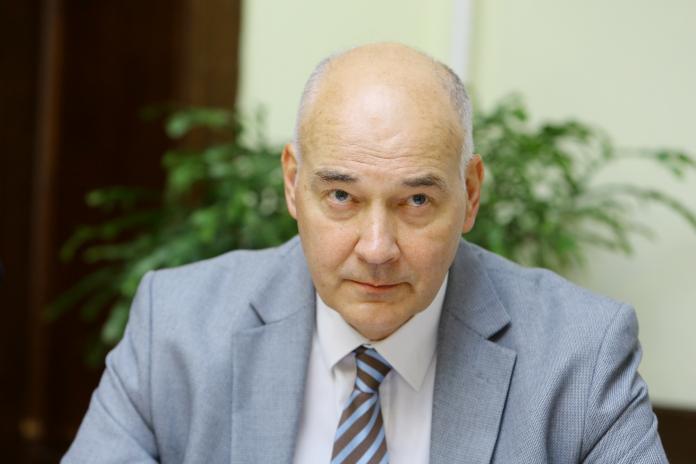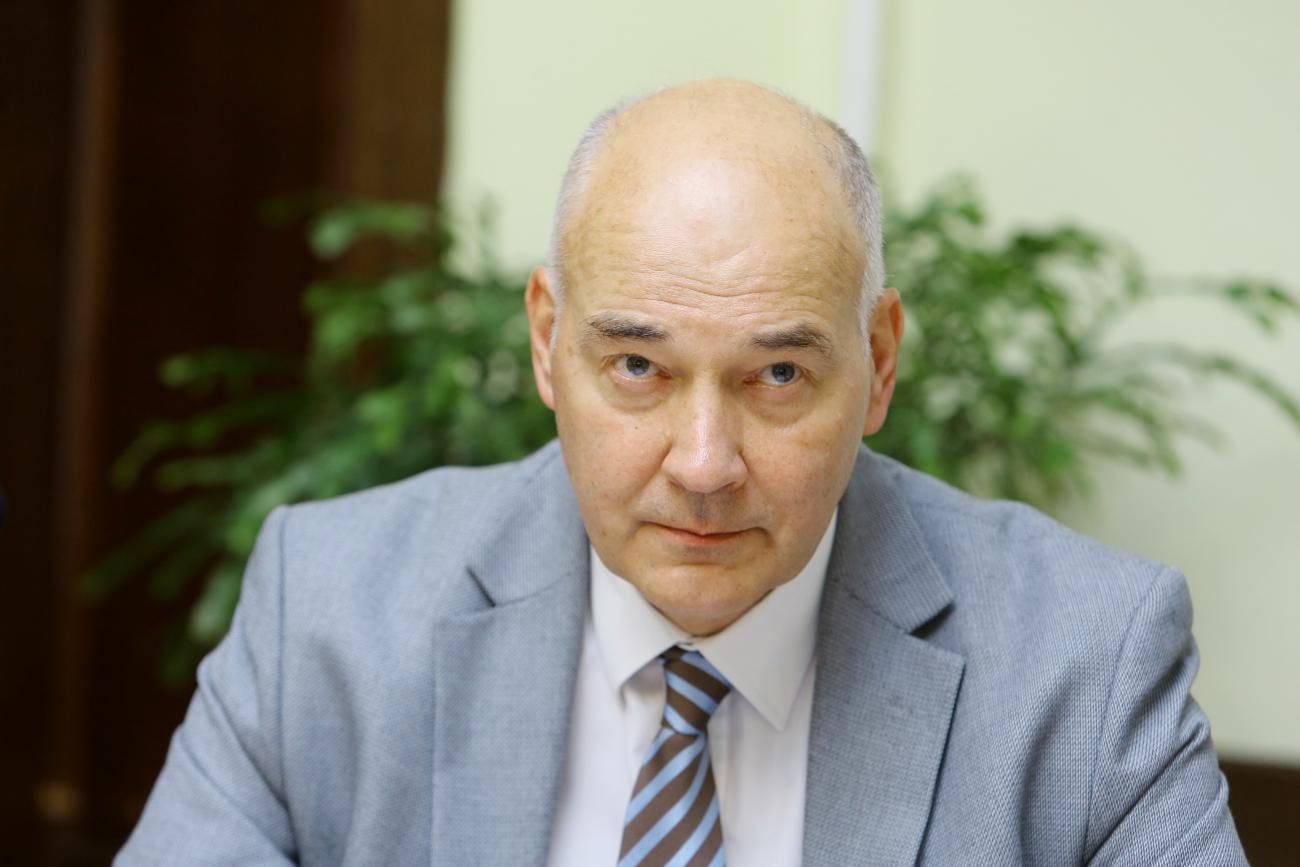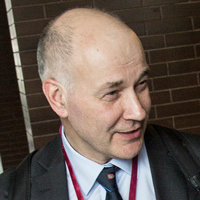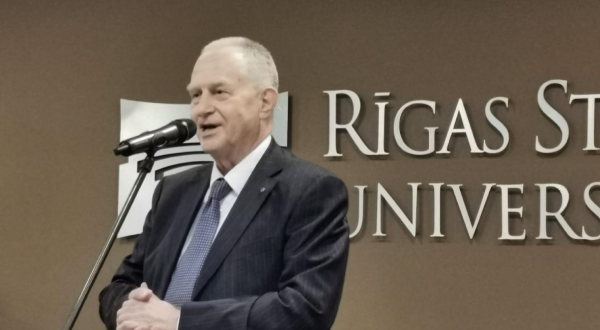From an academy to a university: the role of social sciences in RSU development
Studies in social sciences at Riga Stradiņš University (RSU) took root at the time that the Latvian Academy of Medicine faced a major transformation, in response to the situation faced by higher education in late 1990s. The decision to attain the status of a university was critical, by retaining the traditions of providing exceptional medical education and moving forward by expanding the offer with unique social studies programmes. RSU former rector (1993 – 2007), Professor Jānis Vētra explains the reasons for choosing this particular development path and reveals what internal and external challenges had to be faced during the period of changes.
Who was the originator of the idea that a medical university must also offer social sciences studies?
Just like any other important decision which requires significant investments and fundamental structural changes, the intention to offer social sciences at RSU had a back story. Recalling the events of that time, as I see it, there were both internal and also external factors, not dependent on us, that made this decision a logical one. At the end of the 1990s the university experienced a sharp decline in student numbers which was caused by external factors – a reduction in the government's demand for medical practitioners. Also, changes in legislation in Lebanon accounted for the loss of a major share of RSU international students, which in turn, led to a loss in the university’s income. From a political perspective, Ministry of Welfare officials had not investigated the problems of higher education to offer quality solutions. There were also internal factors – in 1997, twelve academy professors announced their plans to re-establish the Faculty of Medicine at the University of Latvia, thereby firing up discussion that the teaching of medical and healthcare study programmes must be at the university level only.
At that time the Vice-Rector for Economics and Management at the Academy, Marina Gulmane, introduced me to Assistant Professor at the University of Latvia, Faculty of History and Philosophy Ilze Ostrovska, with whom we discussed the political situation and who provided me with a relatively impartial view on the processes influencing higher education.
At the time, the Academy was engaged in ongoing and active debate on future development scenarios at the management level. And based on the argument that medical education must be acquired only at the university level, we came to realise that we ourselves have all the prerequisites for becoming a university. At that time we already offered studies not only in medicine, but also in dentistry, pharmacy, nursing and rehabilitation and we had made inroads into public health studies. Assistant Professor Ilze Ostrovska came up with the suggestion and expressed her readiness to set up a new RSU structural unit that would offer social sciences studies, using a study approach new to Latvia – the module system. As this idea dovetailed perfectly with the academy’s intention of attaining the status of a university, a month after the Senate had voted to approve the establishment’s name change, a resolution was made to establish the RSU Faculty of Social Sciences.
The module system you mentioned is still among the aspects that make studies in social sciences at RSU different from similar programmes offered by other universities in Latvia. Why did you, as rector at that time, support the decision of implementing studies differently than in medical and healthcare study programmes?
Thanks to new opportunities that emerged in the late 1990s – to go on experience exchange visits, we saw that studies can be organised differently and implementing good practice examples from other countries at home seemed like an excellent idea. Moreover I. Ostrovska had strong arguments for the need to take on this approach in the establishing of new study programmes. Module systems have a number of advantages that have paid off in the long run. One of the most important advantages, in my opinion, is the flexible study schedule which makes it possible to attract local and international academics who do not have the time to stay at the university for the entire semester or academic year.
It was an utterly new approach, that required RSU internal support. Social sciences studies highlighted the fact that studies take place within a department and not the university as such, going against the traditions of the Latvian Academy of Medicine which postulated that students are part of the university and not a particular structural unit. This situation had come about because the entire study process was planned and implemented by a single department, which is impossible in the case of medical studies. I can honestly say that we had to fight for this different approach and it was not an easy task.
There were also differences in student and lecturer relationships. In medical and healthcare studies the relationship between students and lecturers has been and remains rather formal. Over the past few years the level of formality has relaxed slightly, mostly because of the incoming international students, however there still are strict rules of behaviour. In the social sciences block, students and academics, similarly as in medicine, address each other as colleagues and have a comparatively informal style of communication, which – along with the advantages, brings along also certain risks. When everything is going smoothly it facilitates an air of cooperation and trust, yet it makes for difficult conflict resolution.
Over time, the module system was recognised as viable, the first graduates and employers were proof of this, and our academics from the medical field increasingly started to recommend to their children to take up studies in the RSU social sciences study programmes.
Our choice of academics was instrumental in popularising our social study programmes. They addressed our potential students and convinced them to study social sciences at RSU.
Professor Jānis Vētra
Where does the name of the Faculty of European Studies originate, as it was approved only in 2002 when the first social sciences students were already preparing for graduation?
In March 1998 the Senate of the Latvian Academy of Medicine resolved to establish the Faculty of Social Sciences. However, very soon after we abandoned this name, as social sciences studies were offered by several universities and it was important to single out the uniqueness of the programme, giving our potential students the signal that we offer different, more targeted social sciences studies. We decided on the name ¬– European Institute of Integration – which was subsequently approved. Given the focus of the study programmes on preparing specialists for work with international integration issues, the name seemed more concise and appealing. The resolution to establish the Faculty of European Studies was made when we realised that the programmes are full, there are good prospects for increasing the range of programmes and the number of students and the institute could become a full-fledged RSU faculty.
What were the greatest challenges following the Senate vote on establishing the Faculty of Social Sciences?
Recalling that time, it seems that the most interesting period was recruiting the staff. The time of finding and recruiting suitable candidates was an intense and challenging one. I must admit that I.Ostrovska's passion for this idea to see the light of day made it possible. Thanks to her, over the course of half a year, I, as the university’s rector, had the chance to meet almost all the individuals who qualified as experienced or potential lecturers in political sciences, international and public relations, journalism and economics. In the first years the choice of lecturers was key to attracting students – they approached potential students and convinced them to study social sciences at RSU.
How would you characterise the role of social sciences in RSU development over the past 20 years?
I think that RSU gained from this interaction in several ways. One of the things that has experienced a fundamental change along with social studies students entering the university is the students’ activity in representing their interests. At one point the RSU student council was dominated by students from ESF as they were active, open and ready to discuss the study process and development concerning matters at the highest level. Over time their efforts and work with student representation have inspired medical and healthcare students and in recent years healthcare students have taken the lead on student council.
The presence of social sciences has gradually made the university environment more vibrant, more appealing and open to national and international trends. Another event that would be impossible without ESF students is the RSU Academic Ball. The idea was brought to me in 2002 by the first social sciences study programme graduates who managed to organise a spectacular event, which has become an outstanding tradition. The social sciences studies block helped pave the road for interdisciplinary studies and research at RSU.
What will the future of RSU social sciences studies look like, in your opinion, in the next 20 years?
My view is that we can talk about several prospective directions. One of them is the training of experts in international relations and political sciences – this was topical in the late 90s and I am convinced that the situation will be the same in 20 years. Our graduates work in state and municipal institutions, including the Ministry of Foreign Affairs and embassies. Over these years several universities have attempted to offer similar study programmes in political sciences and international relations, however this is a hard nut to crack. Today such programmes are offered only by two universities, which is good, as competition fosters development – giving choice to students, academics and employers. This motivates us to keep a finger on the pulse and track the latest developments to always offer topical study content.
Research development is another growth direction as the possibility to conduct research is an asset for attracting the best academics and students and to create unique study content. I think that in the case of RSU, the keyword for facilitating research in social sciences is specialisation – we have all the opportunities to create new research areas where we can be unique.
The third direction which I already mentioned is interdisciplinarity. The demand for interdisciplinary studies is growing and with time, it will only increase. Medical law, social entrepreneurship, healthcare business, clinical and health psychology, investigative journalism – these are only a few examples of developing unique and competitive study content.







